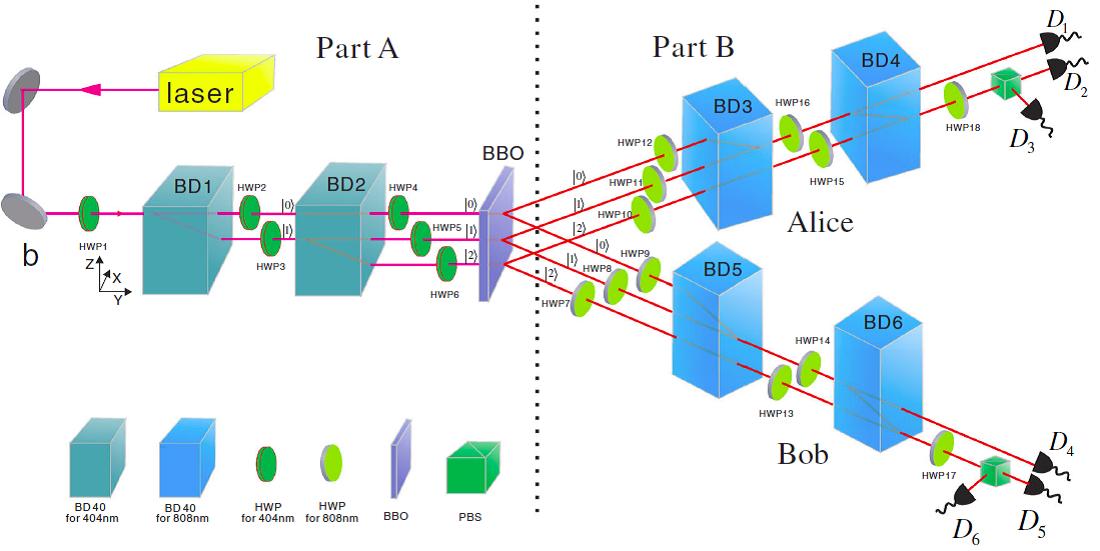A team led by Professor LI Chuanfeng from Key Lab of Quantum Information has experimentally tested compatibility-loophole-free Kochen-Specker contextuality, the result was published in Physical Review Letters on October 21.
The physical impact and the testability of the Kochen-Specker (KS) theorem is debated because of the fact that perfect compatibility in a single quantum system cannot be achieved in practical experiments with finite precision. Li’s group follows the proposal of A. Cabello and M. T. Cunha [Phys. Rev. Lett. 106, 190401 (2011)], and presents a compatibility-loophole-free experimental violation of an inequality of noncontextual theories by two spatially separated entangled qutrits. In experiment, they for the first time generate a maximally entangled qutrit-qutrit state with a fidelity as high as 0.975 with spontaneous parametric down-conversion process where the information is encoded in spatial mode. Their method is scalable and can be used to generate high-fidelity high-dimensional entangled photon pairs. Next, the two photons are distributed to separated spaces and then measured locally, providing the compatibility requirement. The results show that the inequality for noncontextual theory is violated by 31 standard deviations. These experiments pave the way to close the debate about the testability of the KS theorem. In addition, the method to generate high-fidelity and highdimension entangled states will provide significant advantages in high-dimension quantum encoding and quantum communication.

Setup for experimental test of compatibility-loophole-free contextuality (image from Physical Review Letters, LI Chuanfeng’s group)